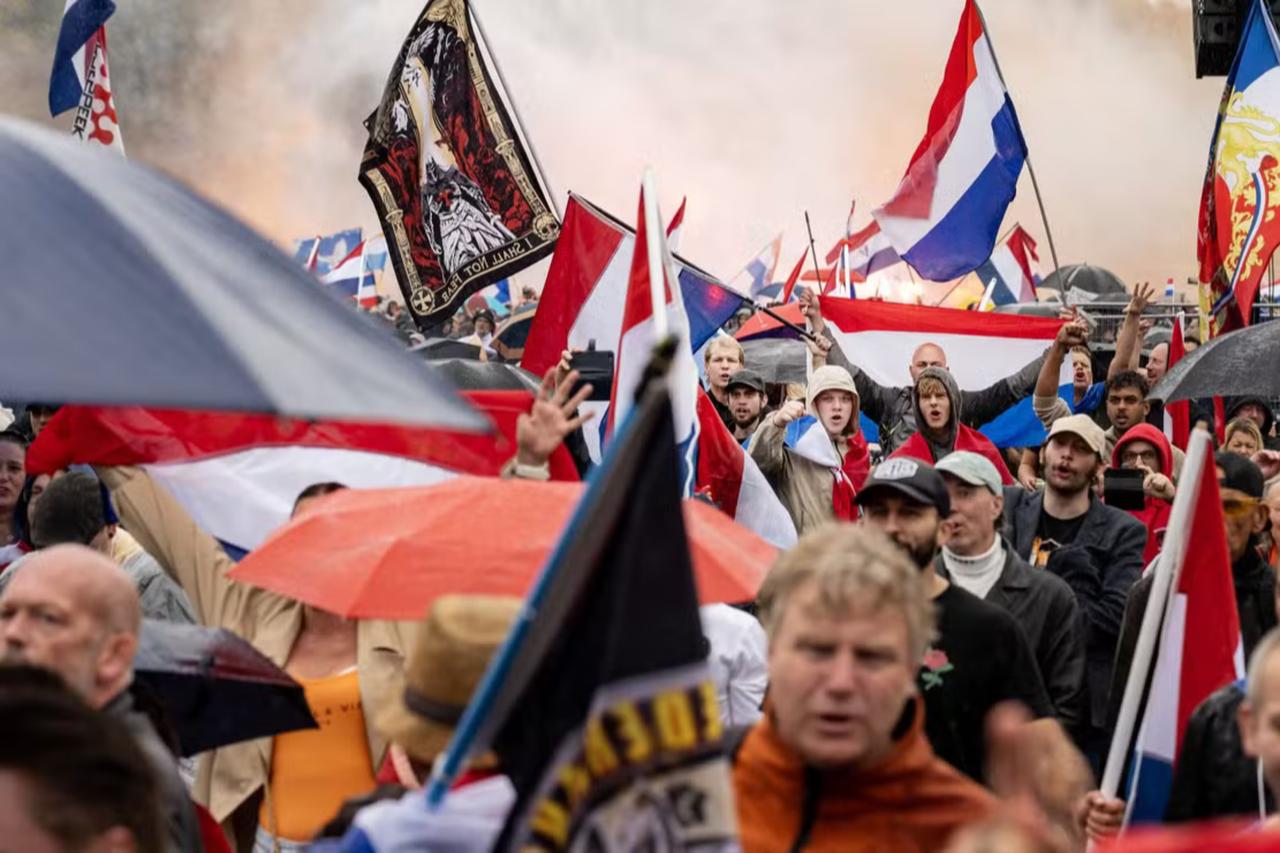
Across the Netherlands, conversations this autumn often circle back to a single concern: the country’s political climate feels increasingly harsh and unpredictable.
Among Dutch people with no migration background and citizens with immigrant backgrounds alike, there is a sense that politics has turned from a debate over policies into a struggle over identity and belonging.
Unfortunately, that perception is not groundless. Polling consistently places the far-right Party for Freedom (PVV) ahead, while centrist parties appear uncertain about how to counter exclusionary rhetoric without alienating frustrated voters.
Peilingwijzer, the aggregated polling model maintained by political scientist Tom Louwerse, estimates the Party for Freedom (PVV) at 29–35 seats in the 150-seat Dutch House of Representatives.
GroenLinks–PvdA (the GreenLeft–Labour alliance) follows with 23–27 and the Christian Democratic Appeal (CDA) with 22–26, while the traditionally dominant People’s Party for Freedom and Democracy (VVD), which is a liberal-conservative party, has dropped to 14–18.
Smaller right-wing parties such as JA21 (conservative-liberal) and the rural-focused Farmer–Citizen Movement (BBB) are growing but remain too small to create a stable majority with PVV.
Pollsters differ because they define “undecided” differently.
Verian’s Peilingwijzer says about 30% of voters have no party preference at all. Ipsos I&O finds only 17% fully certain, meaning 83% have a preference but are not firmly decided.
Wilders has said he is willing to govern and could form a minority cabinet if other parties refuse cooperation.
Current seat projections (150-seat parliament):
A study by The Hague Centre for Strategic Studies (HCSS) in September 2025 found 48% would prefer a “strong leader” over compromise-driven governance, as reported by NRC.
Many call democracy “messy” and want clarity and control, creating space for exclusionary rhetoric.
This mood dominated the General Political Reflections debate in the Dutch House of Representatives on Sept. 17-18.
Leaders echoed King Willem-Alexander’s plea for unity, yet Wilders spoke of an “Islam problem” and called for closing Islamic schools, while centrist parties focused on coalition maths instead of defending inclusion.
Why far-right messages resonate:
On Sept. 20, 2025, far-right protesters waved NSB flags, made Nazi salutes, attacked police, stormed the Binnenhof (the historic parliamentary complex), and targeted the progressive D66 party office in The Hague.
The National Coordinator for Counterterrorism and Security (NCTV) warned that ambiguous words from influential politicians embolden extremists, as reported by NRC.
The justice minister, Foort van Oosten, first downplayed the riots as hooliganism before acknowledging far-right symbols and motives following significant backlash.
On Sept. 25, parliament unanimously condemned right-wing extremism and passed motions for a national strategy, potential group bans, and facial-recognition tools.
However, the debate also exposed divisions, with some parties pushing an asylum stop under emergency law while others accused them of fuelling the very polarization they decry.
Centrist parties in Netherlands struggle to counter extremism
Mainstream parties promise action against extremism but hesitate to name far-right violence as political.
A national anti-extremism strategy is planned, yet leaders often avoid divisive debates on migration and Gaza.
With most refusing to partner with Wilders, he presents a minority cabinet as plausible, reinforcing minority fears that a party hostile to them could still set the agenda.
In 2023, the Netherlands received 336,000 immigrants and saw 198,000 departures, a net gain of 137,000.
Natural population growth was negative, so migration now drives overall growth, as reported by Statistics Netherlands (CBS).
Newcomers came mainly from Ukraine (35,000), Poland (26,700), Türkiye (22,200) and Germany (17,100). Non-EU arrivals were led by family reunification (41,600), temporary protection (37,100), asylum (32,000), study (23,000) and labour (26,000).
By 2022, 2.53 million residents had a non-Western background. Major groups: Türkiye (~430 000), Morocco (~419 000), and Suriname (~360 000), according to Statista.
Overall population: 75.4% Dutch, 6.4% other EU, with minorities including Turkish 2.4%, Moroccan 2.4%, Surinamese 2.1%, Indonesian 2% and other 9.3%. Many migrants eventually leave; migration offsets more deaths than births.
Rotterdam reflects multicultural reality of modern world
Rotterdam (617,000 residents) is majority-minority among youth: only 52.4 % have parents of Dutch origin, and about 70 % of young people have migrant roots.
Key groups: Suriname 8.7%, Türkiye 7.8%, Morocco 6.5%, Antilles/Aruba 3.6%. The city counts 174 nationalities; Muslims make up about 13%, mostly Turkish and Moroccan, according to the Council of Europe.
For many, this diversity is ordinary life. But national campaigns framing immigration as a threat make long-settled families feel unwelcome.
The 20 September riots, with Nazi symbols and direct intimidation, turned unease into real fear.
Understandably, minorities and Muslims feel threatened when the leading party speaks of an “Islam problem,” proposes closing religious schools, and remains central to coalition talks.
Many Dutch people with no migration background, meanwhile, are tired of constant conflict and crave order.
The challenge for serious politics is to protect fundamental rights while calming voters with credible policy, not exclusion or silence.
If the center cannot meet that challenge, this election will shape more than parliament’s seat count.
It will decide whether millions of residents still feel fully part of the Netherlands’ future.